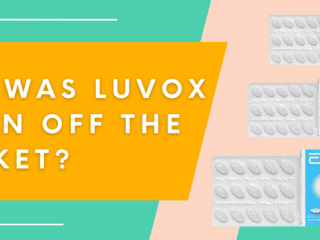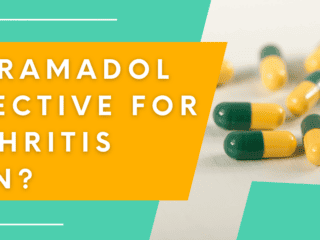Medications like famotidine can help combat stomach problems like stomach ulcers, GERD, excessive acid production, and heartburn, which can make eating, and daily living in general, a bit unbearable.
However, famotidine has had some side effect issues and for a time, disappeared from the market. Could there be a connection? Why did famotidine disappear from shelves, has it ever been taken off the market?
Has Famotidine Ever Been Taken Off The Market?
There was, however, a notable shortage of Famotidine reported, which was attributed to either recalls of other heartburn medications, its use in COVID-19 treatment research, or a combination of both, but not because of a recall on Famotidine itselfâ.
Moreover, in January 2020, when some antacids were recalled due to contamination with a cancer-causing impurity called NDMA, Famotidine did not test positive for this impurity and remained on the marketâ.
The History of Famotidine
What is Famotidine?
Famotidine is an antacid and antihistamine used to treat heartburn, gastritis, stomach ulcers, and gastroesophageal reflux disease (GERD) in both children and adults. It belongs to the class of medicines known as histamine H2-receptor antagonists or H2-blockers, which work by decreasing the amount of acid the stomach produces.
Famotidine is available both over the counter (OTC) and by prescription, available through oral route or by intravenous injects. Common brands of famotidine include Pepcid®, Zantac 360®, Act®, Dyspep HB®, and Fluxid®.
Controversies Surrounding Famotidine
Was Famotidine Withdrawn From The Market?
Was famotidine pulled out from the market – No, it wasn’t. In fact, what really happened was quite the opposite.
In 2020, over-the-counter and prescription ranitidine, an ingredient of Zantac, was found to have contained a potentially cancer-causing contaminant called n-Nitrosodimethylamine (NDMA), exposure to which studies show could increase the risk of developing liver, stomach, bladder, and prostate cancer.
Originally, ranitidine was also used for the same conditions as famotidine – stomach ulcers, indigestion, heartburn, and acid reflux, with the inclusion of gastro-oesophageal reflux disease (GORD), a recurring version of acid reflux.
Upon the discovery, the manufacturing of ranitidine was discontinued in the United States, and its remaining stocks were pulled out. As a result, patients might have turned to famotidine as an alternative, driving up the demand for the medication and causing a temporary shortage.
Since NDMA is not present in famotidine, Pepcid® and other products containing famotidine were not affected by this action, and famotidine is still available for sale in the United States.
Other Reported Side Effects
While it’s generally safe, famotidine may cause occasional side effects, which are relatively minor, such as:
- Headache
- Dizziness
- Constipation
- Diarrhea
- Fussiness (in babies)
Serious side effects are rarer, but can be severe. If you experience any of them, seek immediate medical attention:
- Hives
- Skin rash
- Itching
- Swelling (in the throat, tongue, lips, eyes, hands, feet, ankles, or legs)
- Hoarseness of voice
- Trouble swallowing
- Breathing problems
- Bleeding gums.
- Blistering, peeling, or loosening of the skin.
- Blood in the urine or stools.
- Dark stools
- Anxiety
- Fast, irregular, pounding, or racing heartbeat or pulse rate
Tell your doctor if you have ever had any unusual or allergic reaction to famotidine to avoid possible allergic reactions. For non-prescription famotidine, make sure to read the label or package ingredients carefully.
Possible Drug Interactions
The following drugs/medications are known to interact with famotidine.
- Bepridil
- Cisapride
- Dronedarone
- Levoketoconazole
- Mesoridazine
- Pimozide
- Piperaquine
- Saquinavir
- Sparfloxacin
- Terfenadine
- Thioridazine
- Ziprasidone
If you are taking these medications at the same time as famotidine, make sure to take them hours before or after you’ve taken famotidine to avoid interactions. Using alcohol or tobacco may also cause interactions to occur.
Who Should Avoid Famotidine
Children younger than 12 should avoid taking famotidine unless prescribed by their doctor. Older adults above 40 may be more sensitive to the side effects of this drug, especially to mental/mood changes, seizures, or unusual fatigue. For pregnant women, famotidine should be used only when needed.
People with heartburn or indigestion for the first time, those with a family history of gastric cancer, have coughing spells, and those using NSAIDs and anti-inflammatories (such as aspirin or ibuprofen) may need to consult their doctors first prior to taking famotidine.
Missing A Dose
If you miss a dose of this medicine, take it as soon as possible. However, if it is almost time for your next dose, skip the missed dose and go back to your regular dosing schedule. Do not double doses.
Storage
Store the medicine in a closed container at room temperature, away from heat, moisture, and direct light. Keep from freezing and out of the reach of children. Do not keep outdated medicine and dispose properly.
Famotidine in Recent Times
Potential Use in COVID-19 Treatment
Some scientists have looked into famotidine as a potential treatment option for combating the symptoms of COVID-19. One study done in 2022 showed that taking 80 mg of oral famotidine thrice daily can reduce COVID-19 symptoms in people who’ve had mild or moderate COVID. An earlier study found that famotidine helped reduce the risk of death or intubation for people hospitalized with COVID-19.
However, famotidine has not been proven useful in COVID-19 treatment and still requires further study and trials to fully establish its effects.
Current Status
To date, famotidine is still available in oral and intravenous formulations and is used as both a prescription and over-the-counter drug. Famotidine is available under the names Pepcid®, Zantac 360®, Act®, Dyspep HB®, and Fluxid®.
FAQ Section
Was Famotidine banned in the USA?
No. Famotidine was never banned in the USA or other countries. The temporary disappearance of famotidine is due to the recall of ranitidine, which led to patients switching to famotidine and causing a temporary shortage in supply.Â
Are there any severe side effects associated with Famotidine?
Common side effects include headaches, dizziness, and diarrhea. More serious side effects like irregular heartbeats/pulse rates, bloody and darkened stools, and breathing problems require immediate medical attention.
Is Famotidine being used as a treatment for COVID-19?
Some studies have found famotidine effective in reducing symptoms of mild to moderate COVID-19 and lessening the need for hospitalization or intubation. However, no leading health organization or body has ever endorsed famotidine as a viable treatment for COVID-19.
Is Famotidine still available in the market?
Yes, famotidine is still available in the market for treating stomach ulcers (gastric and duodenal), erosive esophagitis (heartburn or acid indigestion), and gastroesophageal reflux disease (GERD).Â
Is famotidine safe for pregnant women?
As of date, there are no available studies that say that famotidine can cause birth defects when taken during pregnancy.
Conclusion
Famotidine is widely considered as a treatment for gastrointestinal disorders, effectively relieving symptoms that could disrupt the quality of living. Contrary to what was originally thought, famotidine was never pulled out from the market and only experienced a brief shortage. Today, it’s still widely available in the market for use.
Before trying out famotidine or any medication, check with your healthcare provider or pharmacist first to see if the medication suits your health needs and benefits your condition more.
Disclaimer: this article does not constitute or replace medical advice. If you have an emergency or a serious medical question, please contact a medical professional or call 911 immediately. To see our full medical disclaimer, visit our Terms of Use page.









